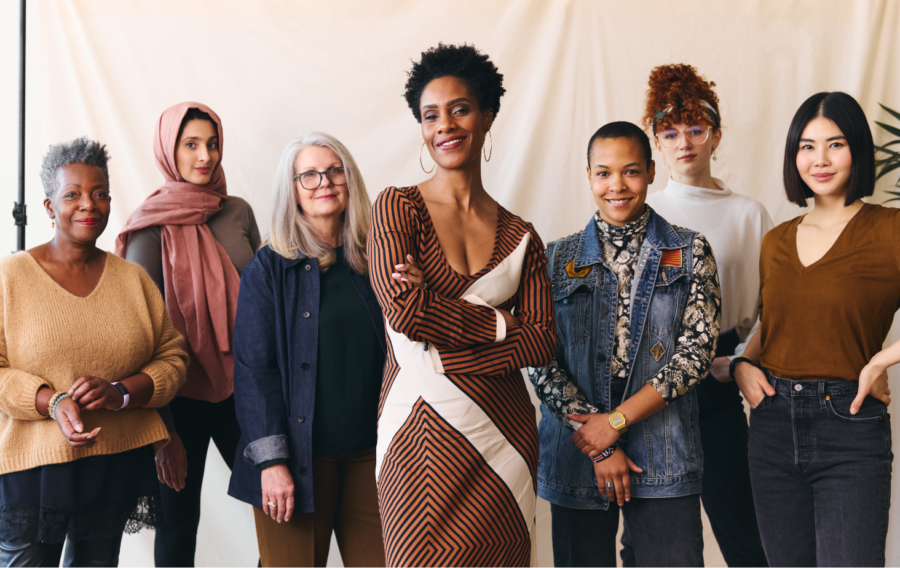How I am Unlocking Freedom: RO DBT Skills for BIPOC Navigating Social Signals and Racism

Living in a world shaped by systemic racism often means that BIPOC (Black, Indigenous, and People of Color) individuals need to become hyper-attuned to social cues in order to survive and navigate potentially harmful situations. This hypervigilance can lead to overcontrol of emotions and behaviors. Radically Open Dialectical Behavior Therapy (RO DBT) offers skills to address the unique challenges experienced by BIPOC and foster greater emotional freedom.
As a Black Latina immigrant woman, I’ve spent my life navigating a world that often greets me with suspicion, prejudice, or outright hostility. To survive, I learned to be a chameleon – constantly monitoring myself, suppressing my anger (well, sometimes not that much), and putting on a mask of agreeability. It was a way to avoid being labeled “difficult” or “too emotional.”
This need for excessive self-control was exhausting. I felt like I was suffocating, losing touch with my true self just to fit into a society that didn’t fully accept me.
RO DBT helped me understand that the way I’d been coping, while necessary at times, was holding me back. It was like I’d built this rigid armor around myself, and my emotions had nowhere to go. RO DBT gave me tools to crack that armor and reclaim my emotional range.
The Challenge of Social Signals
For BIPOC individuals, accurately reading and responding to social signals can be a double-edged sword:
- Protective Hyperawareness: Detecting subtle cues of prejudice or hostility can be a means of self-preservation in discriminatory environments.
- Emotional Burden: This intense focus on reading others can be exhausting, while the need to constantly modify one’s behavior to avoid negative reactions drains valuable mental energy.
RO DBT provides skills to help navigate this social minefield while moving towards healthier emotional expression:
1. “Genuine Curiosity” – Questioning Assumptions
Social situations are often laden with unconscious biases and stereotypes. In the past, my internal alarm bells went off after every social misstep. Now, instead of internalizing negative social signals, I ask myself a question with genuine curiosity.
- Example: If someone seems standoffish, before assuming it’s racially motivated, I consider: “Are they simply having a bad day? Could I be misreading their tone?” “Is this really about racism, or could something else be happening?” This shift gives me much-needed breathing room to avoid reacting to any social contact.
2. “Shared Humanity” – Seeking Connection
It’s easy to feel isolated when facing racism. RO DBT emphasizes the “shared humanity” that connects us all. Looking for common ground, instead of focusing exclusively on differences, can ease social tension. For me, this didn’t mean ignoring racism, but finding points of connection that eased tensions and opened the possibility for genuine conversation.
- Example: Instead of withdrawing after a perceived microaggression, I try a vulnerable statement: “Ouch, that comment felt a bit hurtful.” This opens a door for potential understanding instead of reinforcing a defensive divide.
3. Signaling Openness with a ” Closed mouth- Cooperative Smiling and an Easy Manner”
Non-verbal communication is powerful. RO DBT teaches the closed mouth cooperative smile which is likely to be experienced by both the sender and the receiver as a genuine smile of pleasure, triggering reciprocal smiling and social safety responses (Lynch 2018, p. 159). This is done by turning the corners of the mouth up and stretching the lips over the teeth while keeping the mouth closed so the teeth are hidden. Coupled with an “easy manner” (open, relaxed posture), these subtle cues signal approachability and warmth and can disarm potential hostility.
- Example: In tense situations, I consciously employ these physical cues to promote a sense of safety and invite a more positive exchange rather than fueling defensiveness on both sides. Using these tactics, I have found that people are less likely to assume I am a threat, creating less-charged situations from the outset.
Important Considerations
Make no mistake, RO DBT skills alone won’t dismantle systemic racism. Advocating for societal change is essential. And there are absolutely times when fighting back fiercely is necessary; these skills offer a means of:
- Reclaiming Power: Reducing the impact of negative social signals on your emotional state by helping with emotional freedom: I’m less often trapped in a state of suppressed anger or forced pleasantness. I allow a more comprehensive range of emotions and express them in healthier ways.
- Building Resilience: Developing emotional flexibility to navigate challenging social landscapes.
- Self-Compassion: I’ve realized that my need for hypervigilance was a survival tactic, not a personal flaw. This reduces my shame and gives me space to focus on healing.
- Expressing Yourself: Fostering the confidence to assert your authentic self, even in the face of potential disapproval. Now, I can better assess which situations demand a firm response and which might respond better to vulnerability or gentle confrontation.
As I said, RO DBT has yet to be a magic fix for society (I wish – wouldn’t that be marvelous!). It’s hard work confronting my deeply ingrained patterns. But it’s given me agency in a world that often tries to deny that to women like me. When I assume the front driver role to navigate this world, I stop giving excuses to people to do their homework around racism, which allows me space to focus on other things. My journey is far from over, but now I have the tools to fight for my right to be my full, authentic self – with all the joy, anger, and complexity that entails.
If you’re a BIPOC individual struggling with the emotional toll of social navigation, consider seeking an RO DBT therapist. It’s a pathway towards finding greater internal freedom despite external challenges.